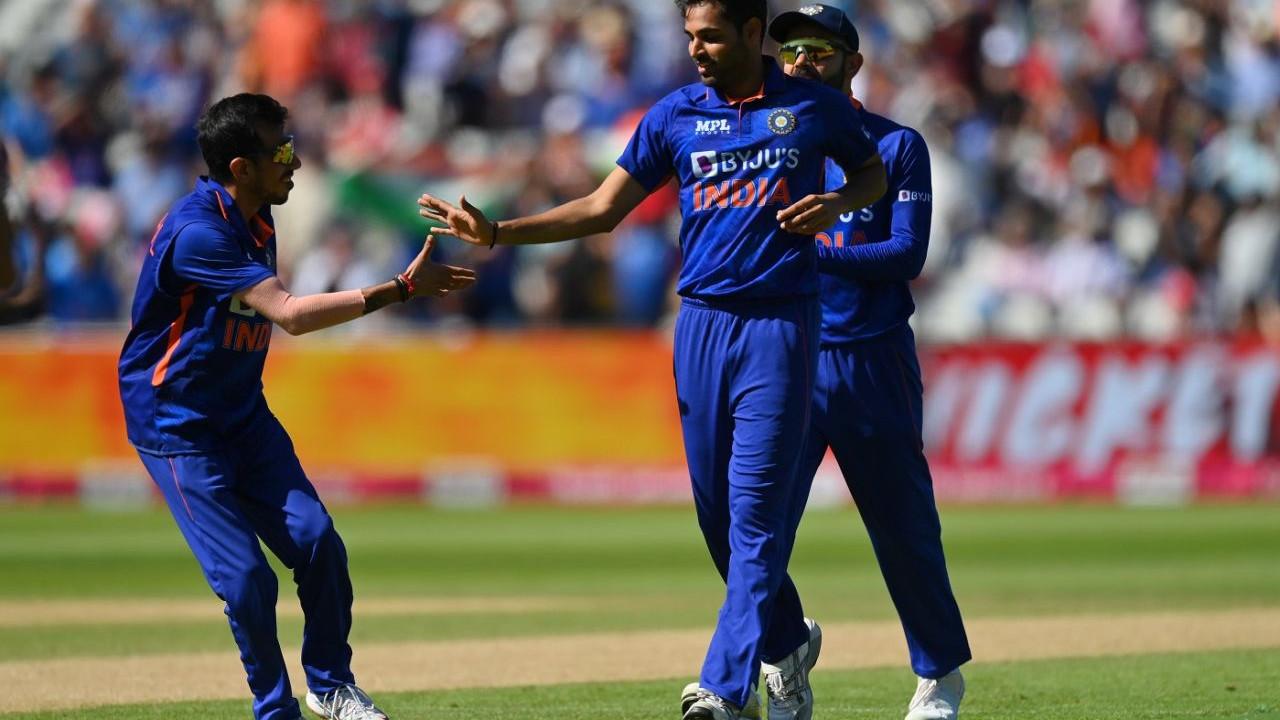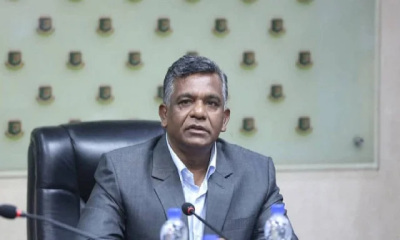India made wholesale changes to their playing eleven, bringing all their all-format players back, but importantly didn't deviate from their shiny no-holds-barred batting approach. They stumbled on the way to 170 before an outstanding bowling performance helped pull off a 49-run win on Saturday to take an unbeatable 2-0 lead at Edgbaston on Saturday.
In these two wins against an England team comprising a number of T20 specialists, India may have reasons to believe it would be worth continuing to drop the anchor batter from their eleven with the T20 World Cup three months away. "Fingers crossed we are moving in the right direction," captain Rohit Sharma said after the match.
Their boldest strategic punt came early in the match as Sharma and Rishabh Pant walked out to open. To have the disruptive Pant join Sharma, a white-ball powerhouse opening in white-ball cricket, was always a tantalising option. They tried it first in February against West Indies in an ODI at home but the vagaries of limited overs cricket and India's top-heavy batting list meant it turned out to be short-lived.
One sensed the experiment being given a try before the World Cup and India went ahead with a pair that could be spectacular. It almost didn't work. Had Sharma's ugly hoick off the second ball of the match gone to hands or the sitter he offered to backward point off the fourth ball being held, the partnership could again have come to a premature end.
Sharma was fortunate and the left-right, heavy duty combination wreaked havoc for the first 4.5 overs. Batting control percentage was thrown into the bin as the duo took calculated risks. The India captain launched into some characteristic lofted drives over the straight infield and Pant, not showing bias to any particular scoring area, got straight boundaries, hit deft cuts and cheeky pulls with a follow through to beat.
But England counter-punched with three quick wickets from debutant seamer Richard Gleeson, who used his extra yard of pace and hit hard lengths. He first got rid of Sharma on 31 (20b), then Virat Kohli as he tried to adapt to India's high-risk batting approach. Kohli (1), playing his first T20 after IPL, failed to hold his shape and holed out to the boundary square off the wicket on the off-side, extending his poor run of scores.
At the end of the first six overs, India were 61/1. After 6.2, they were 61/3. And after 10.4 89/5. Those are the pitfalls of continuing to push for boundaries after the field spreads out and the England seamers pushed India back by hitting good lengths. Following up on Gleeson's success (4-1-15-3), Chris Jordan (4-0-27-4) pushed his length back decisively on a wicket that offered steep bounce. Dinesh Karthik, who walked out to bat out of position in the 11th over, perished on 12, even before the finishing overs kicked in. But Ravindra Jadeja with his 46* (29b) provided the finishing kick to take India to a respectable total.
As they did with the bat, India won the powerplay with the ball too. Bhuvneshwar Kumar (3-1-15-3) is leaving no one in doubt that there is no one to match his swing bowling prowess. He sent back Jason Roy off the first ball and got captain Jos Buttler (4) again, caught behind this time. The key wicket of danger man Liam Livingstone came next courtesy Jasprit Bumrah.
Smarting from the Test loss at the same venue under his captaincy, the ace pacer, just when the aggressive Livingstone (15) least expected, delivered a fast off-cutter to undo his defenses and his off-stump, leaving England struggling at 36/3 in the powerplay.
Sharma never allowed the home team to settle down after that with smart bowling moves. Wicket-taker Yuzvendra Chahal was introduced soon after the field spread and he was in the thick of things, getting the hard-hitting Harry Brook (8) caught in the deep. Soon he also sent back Dawid Malan (19) to reduce England to 55/5, and they could never recover.




-20260225072312.webp)

-20260224075258.webp)

-20260217073221.webp)





-20260226080139.webp)
















-20260219054530.webp)





-20260221022827.webp)